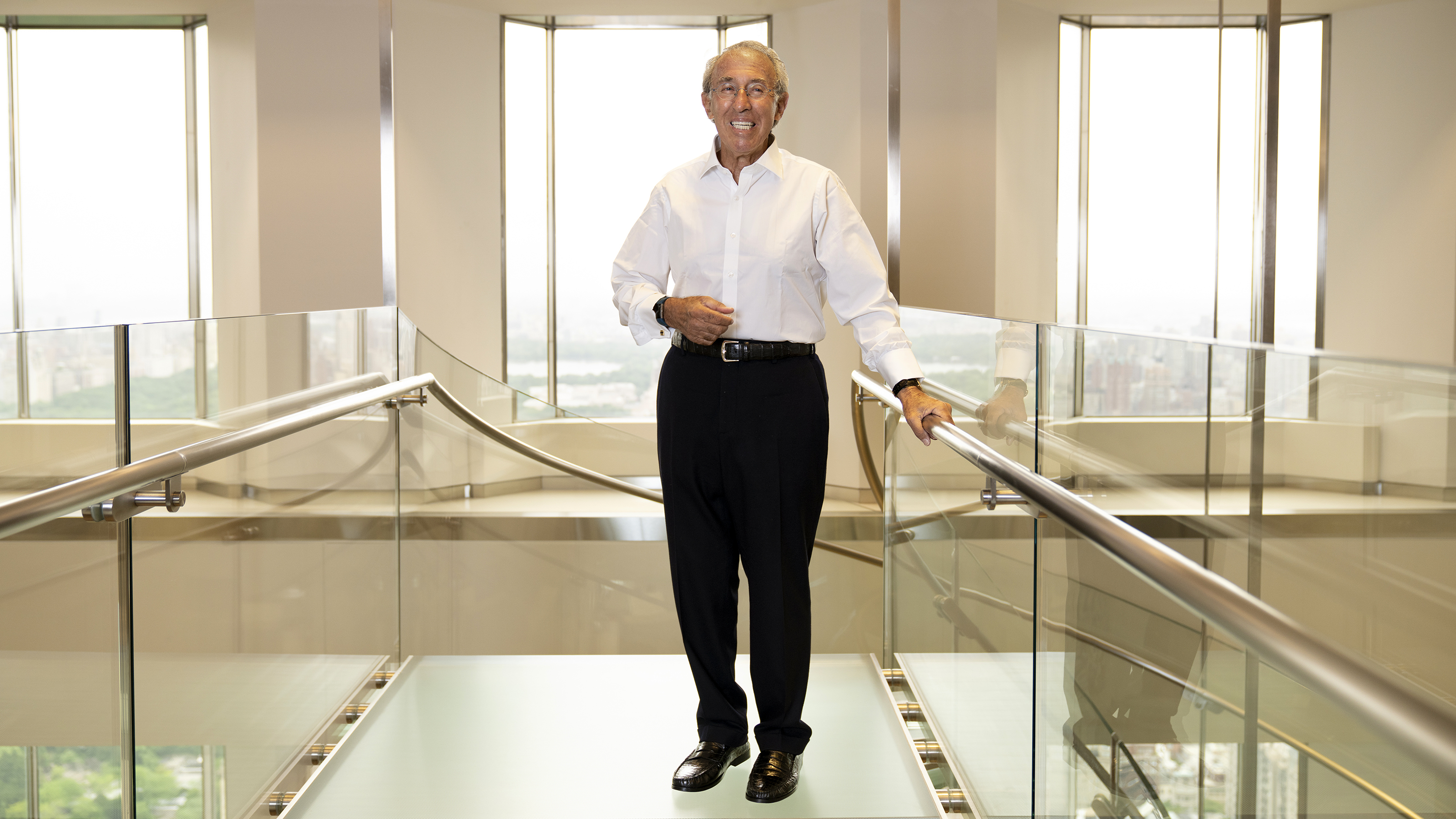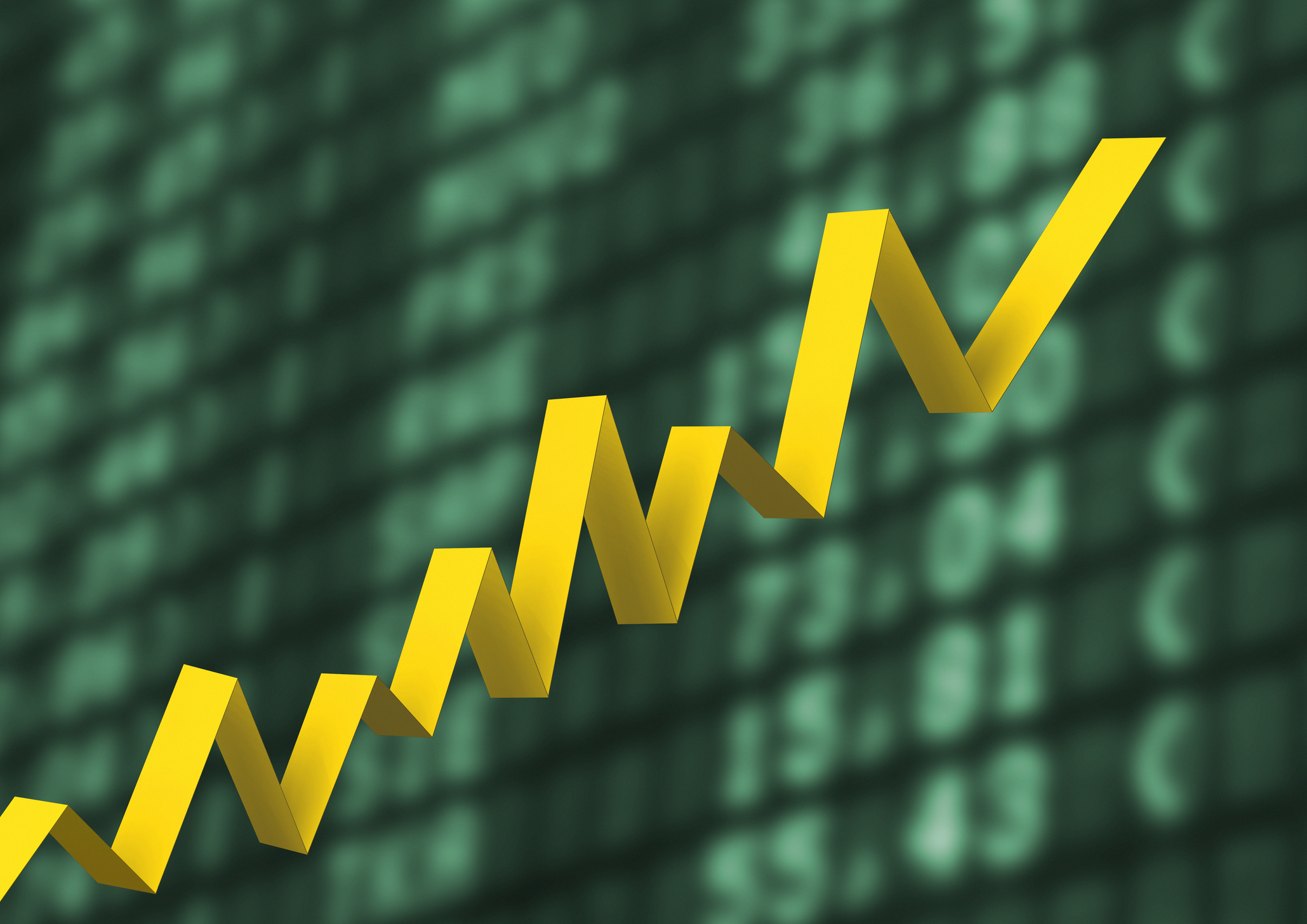Ron Baron: A Fund Legend Shares Stock-Picking Secrets
The ability to buy and hold great growth companies for the long term is important to becoming a successful investor.

Profit and prosper with the best of Kiplinger's advice on investing, taxes, retirement, personal finance and much more. Delivered daily. Enter your email in the box and click Sign Me Up.
You are now subscribed
Your newsletter sign-up was successful
Want to add more newsletters?

Delivered daily
Kiplinger Today
Profit and prosper with the best of Kiplinger's advice on investing, taxes, retirement, personal finance and much more delivered daily. Smart money moves start here.

Sent five days a week
Kiplinger A Step Ahead
Get practical help to make better financial decisions in your everyday life, from spending to savings on top deals.

Delivered daily
Kiplinger Closing Bell
Get today's biggest financial and investing headlines delivered to your inbox every day the U.S. stock market is open.

Sent twice a week
Kiplinger Adviser Intel
Financial pros across the country share best practices and fresh tactics to preserve and grow your wealth.

Delivered weekly
Kiplinger Tax Tips
Trim your federal and state tax bills with practical tax-planning and tax-cutting strategies.

Sent twice a week
Kiplinger Retirement Tips
Your twice-a-week guide to planning and enjoying a financially secure and richly rewarding retirement

Sent bimonthly.
Kiplinger Adviser Angle
Insights for advisers, wealth managers and other financial professionals.

Sent twice a week
Kiplinger Investing Weekly
Your twice-a-week roundup of promising stocks, funds, companies and industries you should consider, ones you should avoid, and why.

Sent weekly for six weeks
Kiplinger Invest for Retirement
Your step-by-step six-part series on how to invest for retirement, from devising a successful strategy to exactly which investments to choose.
Ron Baron is chairman, CEO and portfolio manager at Baron Capital, the investment firm he founded in 1982. Read on as we ask the master of Baron Funds about what he looks for in growth companies, what he emphasizes to his portfolio managers and analysts and the stocks he likes now.
You're a master of growth investing, which involves finding companies with prospects for faster-than-average profit growth, among other measures. What do you look for? Everyone can understand what a growth company is. What is hard for most people is being able to understand competitive advantage – the most important thing. That's something you can't figure out with an algorithm. You need to understand a business, how it operates and what makes it difficult for others to compete. It may have a license, patents or a head start in technology.
For example, Tesla's (TSLA) competitive advantage is in its culture of rapid innovation. Tesla has a 10-year lead making batteries and electric cars; it has revolutionized an entire industry.
From just $107.88 $24.99 for Kiplinger Personal Finance
Become a smarter, better informed investor. Subscribe from just $107.88 $24.99, plus get up to 4 Special Issues

Sign up for Kiplinger’s Free Newsletters
Profit and prosper with the best of expert advice on investing, taxes, retirement, personal finance and more - straight to your e-mail.
Profit and prosper with the best of expert advice - straight to your e-mail.
We make investments on the basis of what we think a business will be worth in five or 10 years as opposed to what it's worth right now. Our goal has been to double our money about every five or six years. We have been able to accomplish that by investing for the long term in businesses that we believe are competitively advantaged and managed by exceptional people. We worry about businesses, not about stocks and stock markets.
What do you emphasize to your portfolio managers and analysts? I tell them two things are critical. Number one is competitive advantage. Number two is management, the people who run the businesses. Those executives must be talented, really smart, great leaders, hardworking, inspirational and possess vision. You judge that by meeting people. That's table stakes, getting into the game.
The other thing – which is probably more important than anything else – is whether you can trust the individuals. That judgment requires experience. One of the questions I ask our analysts is, "If your family's well-being was completely dependent upon the success of the business in which you are recommending we invest, what would you need to know to make such an investment? Question everything."
Why did you become such a long-term investor? When I began my career as a young analyst for brokerage firms in 1970, I recommended growth companies like Disney (DIS), McDonald's (MCD), Federal Express (FDX) and Nike (NKE) to institutional clients of those brokerage firms. After those stocks quickly doubled or tripled, I recommended selling. My compensation was based on commissions, not on the long-term success of businesses I recommended. When I looked back on all those 1970s sell recommendations, virtually all of the stocks were dramatically higher. I then concluded that what was important in becoming a successful investor was being able to buy and hold great growth companies for the long term.
We started Baron Capital in 1982 to do just that. We then believed, and still do, that most fund managers and analysts can't invest and recommend for the long term because they are under pressure to perform every day. We have been able to become long-term investors because, for 40 years, we have established an exceptional track record. Performance of very few others has exceeded benchmark returns, but 98.5% of Baron's assets have beaten stock-market returns over the long term, often by several percentage points annually.
What stocks do you like now? We like Hyatt Hotels (H, $92). [Prices are as of June 3.] It has made terrific deals to manage all-inclusive resorts while selling real estate to reduce its fixed assets. Vail Resorts (MTN, $257) is becoming a subscription business, with most revenues coming from season-pass sales in advance of ski season. Real estate company CoStar Group (CSGP, $63) is investing in digital residential real estate services. MSCI (MSCI, $438) is a unique index provider with strength in environmental, social and governance risk metrics. And Space Exploration Technologies has an amazing opportunity to launch enough satellites to provide worldwide internet access. SpaceX is private, but it is a major holding of the Baron Partners (BPTRX) and Baron Focused Growth (BFGIX) funds.
Do you ever hold on to stocks that underperform for a few years? Yes. That is often the case. Tesla is one example. We invested $380 million in Tesla from 2014 to 2016. Although we believed we could earn 20 times our money over 10 years, we regarded it as a risky investment at the time, so we invested less than 2% of our firm's assets in the stock.
We considered it risky because manufacturing cars is a highly regulated, capital-intensive business, and few thought Elon Musk's electric car business would be successful, especially because financially powerful car companies and their dealers and unions, oil companies, hedge funds, and politicians were aligned against this business. During the following five or six years, Tesla's sales increased tenfold. Its share price, however, although extremely volatile, changed little over most of that period.
We were right, and Tesla's sales have continued to increase dramatically. From 2019 to 2021, Tesla's share price increased about 20 times, and we have earned about $7 billion on our initial investment. We expect to make at least three to five times our money again over the next 10 years.
When and why do you sell stocks? We sell principally for three reasons. First, if an investment becomes very successful and, as a result, represents too large a percentage of diversified portfolios, we gradually reduce holdings.
We have sold about $1 billion of Tesla shares, about 15% of our investment in that company. Second, the return that we require – our "hurdle rate" – in most instances is a potential double in five or six years. We believe that most of the time we can accomplish that return by investing in businesses that can increase profits, cash flow and other drivers of value by 15% per year. If a company's growth rate slows to 7% to 8% per year as it matures, it becomes a candidate for sale. Finally, if we determine we have made a mistake, we sell as quickly as humanly possible.
Do you spend any time looking at interest rates, forecasts for gross domestic product and other macroeconomic indicators? Macro judgments are not an important part of our process. I can't predict when there's going to be a recession, and I believe neither can anyone else. I can't predict when the market's going to go up and neither can anyone else.
I've been doing this for 52 years, and in that entire period I've never seen anyone consistently and accurately predict what the economy or stock market is going to do. No one. Not Warren Buffett. Not Elon Musk. Not my friend [former Fidelity mutual fund manager] Peter Lynch. Certainly not me. Most investors try to predict what I believe you can't predict – interest rates, oil prices, wars, election outcomes.
One thing we are certain about is inflation. Inflation is a big deal and always has been. During my 52-year career and 79-year lifetime, inflation has averaged about 4% or 5% per year, according to my analysis of my personal cost of living. This means that the value of your money falls in half about every 14 or 15 years. We invest in growth stocks to hedge against the decline in the purchasing power of our money and to participate in the growth of our country's economy. Inflation will be higher sometimes, lower sometimes, but it's always going to be there.
Profit and prosper with the best of Kiplinger's advice on investing, taxes, retirement, personal finance and much more. Delivered daily. Enter your email in the box and click Sign Me Up.
Andrew Tanzer is an editorial consultant and investment writer. After working as a journalist for 25 years at magazines that included Forbes and Kiplinger’s Personal Finance, he served as a senior research analyst and investment writer at a leading New York-based financial advisor. Andrew currently writes for several large hedge and mutual funds, private wealth advisors, and a major bank. He earned a BA in East Asian Studies from Wesleyan University, an MS in Journalism from the Columbia Graduate School of Journalism, and holds both CFA and CFP® designations.
-
 Dow Adds 1,206 Points to Top 50,000: Stock Market Today
Dow Adds 1,206 Points to Top 50,000: Stock Market TodayThe S&P 500 and Nasdaq also had strong finishes to a volatile week, with beaten-down tech stocks outperforming.
-
 Ask the Tax Editor: Federal Income Tax Deductions
Ask the Tax Editor: Federal Income Tax DeductionsAsk the Editor In this week's Ask the Editor Q&A, Joy Taylor answers questions on federal income tax deductions
-
 States With No-Fault Car Insurance Laws (and How No-Fault Car Insurance Works)
States With No-Fault Car Insurance Laws (and How No-Fault Car Insurance Works)A breakdown of the confusing rules around no-fault car insurance in every state where it exists.
-
 Why I Trust These Trillion-Dollar Stocks
Why I Trust These Trillion-Dollar StocksThe top-heavy nature of the S&P 500 should make any investor nervous, but there's still plenty to like in these trillion-dollar stocks.
-
 Elon Musk's $1 Trillion Pay Package Passes: What's at Stake for Tesla Stock
Elon Musk's $1 Trillion Pay Package Passes: What's at Stake for Tesla StockMore than 75% of Tesla shareholders voted to approve a massive pay package for CEO Elon Musk. Here's what it means for the Mag 7 stock.
-
 The Riskiest S&P 500 Stocks Right Now
The Riskiest S&P 500 Stocks Right NowBuyer beware: These are five of the riskiest stocks in the S&P 500 at the moment, based on one measure of volatility.
-
 Stock Market Today: Wall Street Is Standing By
Stock Market Today: Wall Street Is Standing ByThe waiting is the hardest part with trade war truce talks underway and inflation data on the way.
-
 Stock Market Today: Stocks Stable as Inflation, Tariff Fears Ebb
Stock Market Today: Stocks Stable as Inflation, Tariff Fears EbbConstructive trade war talks and improving consumer expectations are a healthy combination for financial markets.
-
 Stock Market Today: Good Feelings and Solid Data Lift Stocks
Stock Market Today: Good Feelings and Solid Data Lift StocksResilience and de-escalation defined another generally positive day for financial markets.
-
 Stock Market Today: Tesla Drags on Stocks Amid Musk-Trump Feud
Stock Market Today: Tesla Drags on Stocks Amid Musk-Trump FeudSentiment has soured between President Trump and his once-loyal ally, Tesla CEO Elon Musk.
-
 Tesla to Launch FSD in Europe and China: What to Know
Tesla to Launch FSD in Europe and China: What to KnowTesla stock is higher Thursday after the EV maker announced plans to launch its full self-driving driver assistance software in Europe and China in 2025. Here's what you need to know.